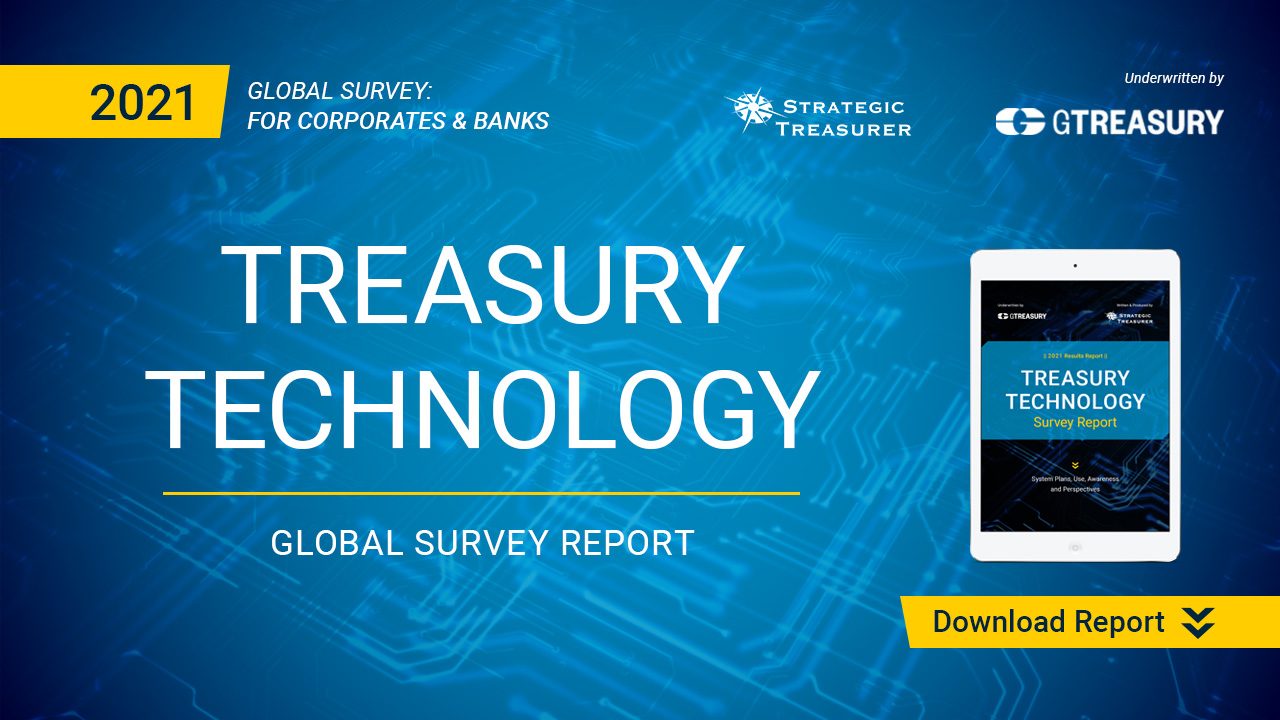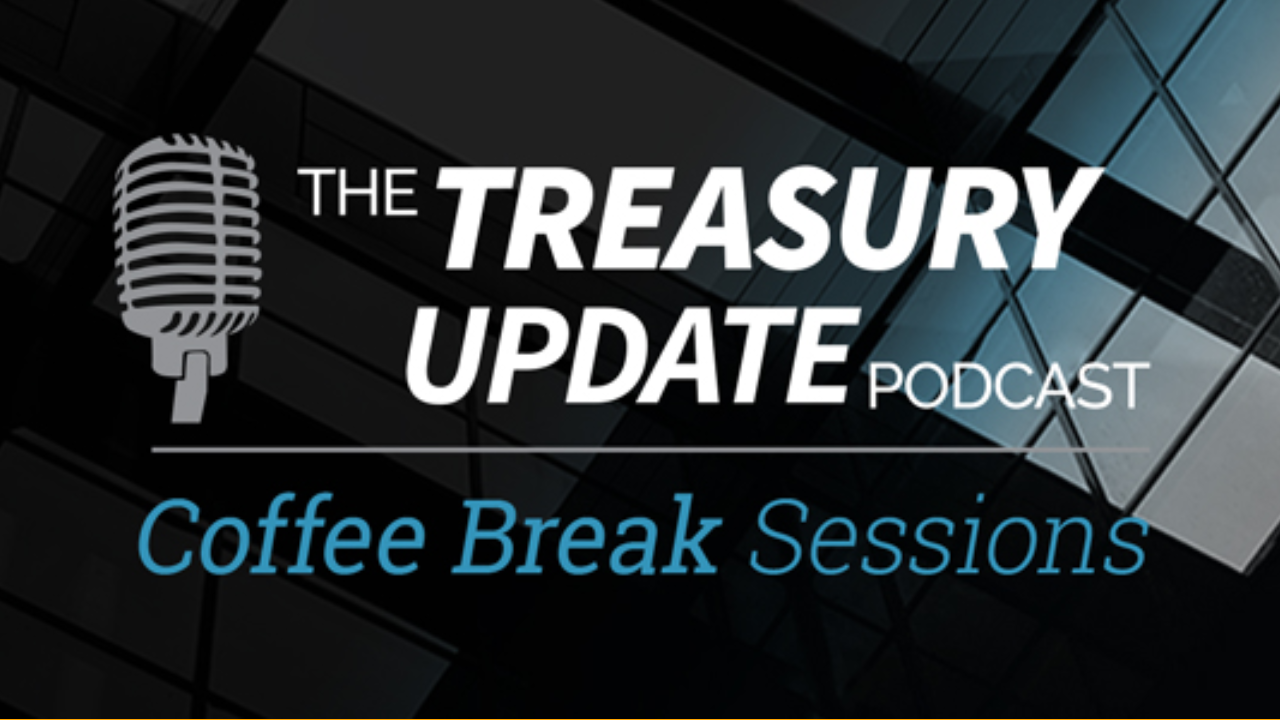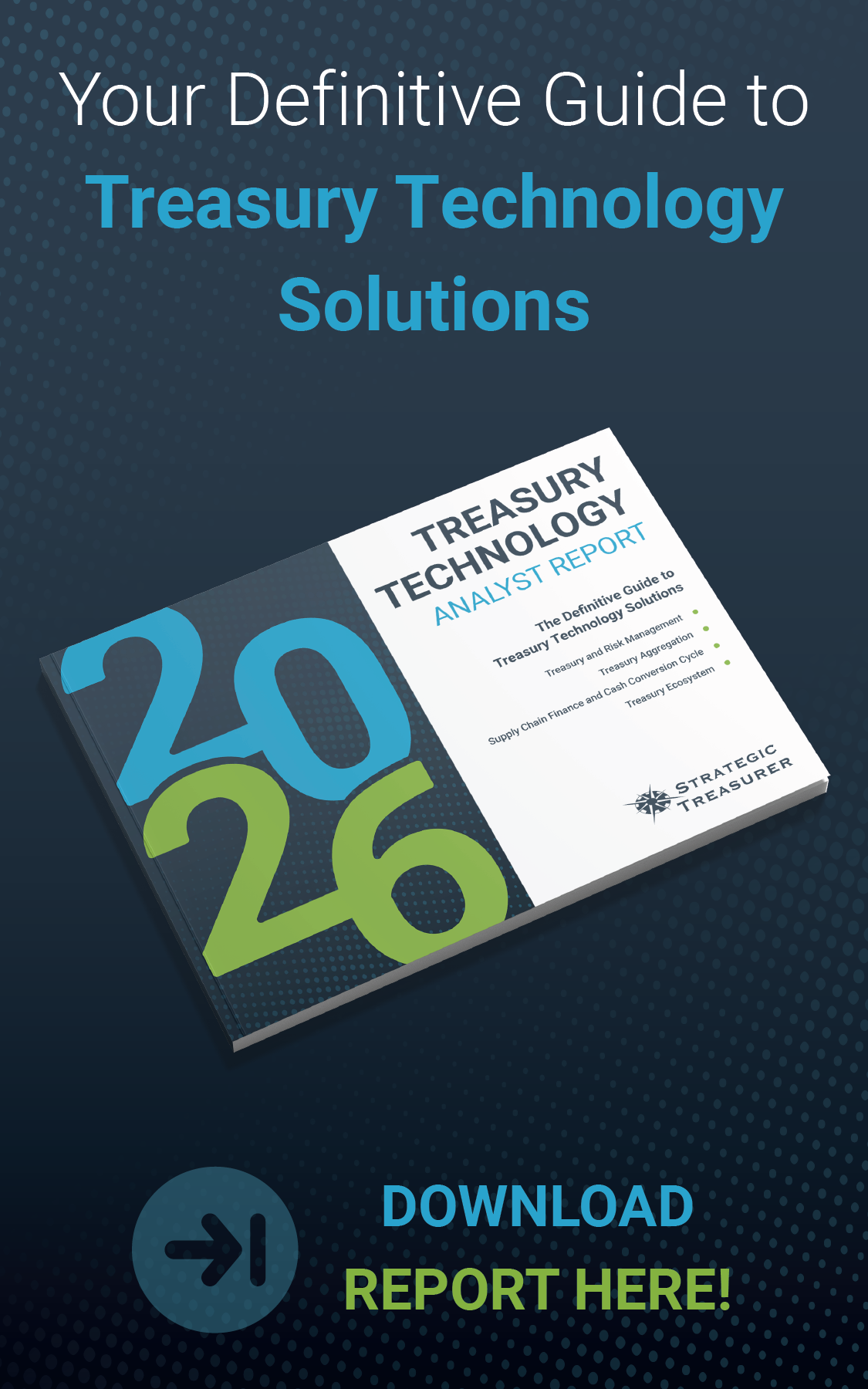
Session 49
Coffee Break Session:
What Is Unclaimed Property?
What is unclaimed property? Coffee Break Session Host Alexa Cook catches up with Strategic Treasurer’s Managing Partner Craig Jeffery to discuss what unclaimed property is, what escheating it means, and how both of these are used. Listen and learn a little bit about this treasury topic.
Host:
Alexa Cook, Strategic Treasurer


Speaker:
Craig Jeffery, Strategic Treasurer


Episode Transcription - (Coffee Break Session Series) - Episode 49 - What is Unclaimed Property?
Alexa Cook 0:12
Hey guys, Welcome to The Treasury Update Podcast Coffee Break session. The show will recover foundational Treasury topics and questions in about the same amount of time it takes you to drink your coffee. This is your host Alexa and today I’m joined with Craig Jeffery, Managing Partner of Strategic Treasurer. Welcome back, Craig.
Craig Jeffery 0:29
Thanks, Alexa.
Alexa Cook 0:31
Yeah, so today we’re gonna shift away from some of those security topics that we’ve been covering and we’re going to dive into unclaimed property and escheating. Can you please give us a quick high-level overview of that, Craig?
Craig Jeffery 0:43
Sure, unclaimed property is any asset that is not claimed and in finance we think of that there’s an outstanding check a check has been cashed or there’s unused credits for the billing process. Those are assets that are unclaimed or considered unclaimed property and those cannot stay with the company past a certain time there are rules about that.
Alexa Cook 1:11
Okay, I just immediately thought of when you get a gift card, and maybe you forget about it, I think they start to lose value over time. So that’s maybe a realistic example.
Craig Jeffery 1:20
Yeah, I think the way that they do that is they write the rules so that they can decrease the value, so they don’t have to escheat it. I just talked about unclaimed property it’s if nobody claims that or they don’t cash the cheque or use the credit or whatever the other states or other governments, government groups say, you have to send it in for escheat it you have to send that value into the state. And if you have so the example the cards is if it loses $1.50 a month or whatever the item is, all that money will go away and stay with the company that issued the card. So, there will be no property left.
Alexa Cook 1:59
Depreciating or reducing those in value that probably save some of the admin work of escheating it, if that’s the right word?
Craig Jeffery 2:06
Well, keep the money and would save them that headache too.
Alexa Cook 2:10
Okay, so it’s a required to do unclaimed property. I feel like it’s not since you know, we’re saying that these gift cards can reduce value, but I just don’t know, are there rules are there requirements?
Craig Jeffery 2:19
There’s quite a few rules, particularly in the United States. There’s some other locations where that’s becoming required too, largely because it’s a great source of additional revenue that politicians have found without raising taxes, they just force that money to come to the state. That’s the one core motivation for it. The other motivation is that the state should live on past companies and hold those assets if someone should come to claim this at some point in time, so they do keep records of it so they can provide that value.
Alexa Cook 2:52
That’s interesting. One of my other questions was, is there an unclaimed property tax, and you had said that they weren’t taxed? I guess, is that a black and white answer?
Craig Jeffery 3:01
I mean, there can be penalties for not, you know, this escheating property at the right time. There’s penalties and interest. So, that’s just properly considered a tax or a fee. You know, but what’s required is, you know, you have certain periods of time where you might have responsibilities to attempt to contact the person like individuals didn’t cash, the check or the company didn’t take the credit against invoices. And after a certain time has elapsed, it’s required that you report certain information about whose asset it was or whose property was to the state and remit payment.
Alexa Cook 3:40
That makes sense. So, I guess, to kind of backtrack, how does property even become unclaimed?
Craig Jeffery 3:46
Well, like if you issue a check, and somehow it gets lost, or someone sticks it in their file, it never clears. So, and then you send a reminder saying “Hey, this check is this check is not cleared”. Or another example might be you issue a credit memo that the company is your customer, never buys something again, that’s the credit sitting out there, and they don’t ask for a refund and maybe the company is closed or changed or something else has happened, and they never use it. And now it’s reached a certain age that if it has been used, it’s considered unclaimed, and therefore, that value has to be remitted to the state. Those are those are a couple examples.
Alexa Cook 4:27
Okay, and then I feel like we’ve kind of covered it, but what kinds of property can be considered unplanned?
Craig Jeffery 4:32
I think that’s well beyond what I can answer. By I usually think of it in the status of payables, treasury, and their responsibilities, but certainly there’s I know there’s rules related to items and safety deposit boxes and things like that. There are certain rules that govern that and that can vary state to state. So, I think that’s just some general information. I wouldn’t be able to give you much more detail on that.
Alexa Cook 4:57
Okay. That’s great. I’m gonna just do a quick recap of everything. So again, I’m saying property is really any asset that’s not claimed. A couple of examples we’ve used have been outstanding checks or unused credits or credit memos. And then if things are not claimed, states, and the states in the government require you to really send it into the state through escheating, and then there are a lot of rules and requirements, especially in the United States. around things like property and the escheating process, but they’re not necessarily taxes, they are more penalties or just, you know, if you break the rules or if you’re not in the right timeline, then you might have a fine for that. And the things that really put into unclaimed property when checks are uncleared, or credit memos are not utilized. That’s really the overview of the unseen property.
Craig Jeffery 5:44
Yeah, I think that’s I think that’s spot on. Now. If you let’s say you’re a gym operator, and people leave towels or wristbands or whatever, you can’t ship that to the state. They don’t want that type of property. They won’t hold it back for that just stays in the lost and found.
Alexa Cook 6:00
I’m gonna say that they don’t require lost and found items to be escheated. That’s great. Well, thank you, Craig, for joining me today and to all of our listeners. Thanks for tuning in this week, and make sure you join us back every first and third Thursday of the month for a new episode. And if you have any topics, questions, comments, or want to reach out to us you can do that through our website or by shooting us an email at podcast@strategictreasurer.com. Thanks again for joining me today, Craig.
Craig Jeffery 6:26
Thank you.
2021 Treasury Tech Survey Report
Strategic Treasurer and GTreasury are proud to present the findings from the Treasury Technology Survey with data from over 250 respondents operating primarily across North America and Europe. This annual study polls treasury and finance professionals on their views regarding the technology drivers and challenges and system plans, use, and needs.
Coffee Break Sessions – A Treasury Update Podcast Series
A part of the Treasury Update Podcast, Coffee Break Sessions are 6-12 minute bite-size episodes covering foundational topics and core treasury issues in about the same amount of time it takes you to drink your coffee. The show episodes are released every first and third Thursday of the month with Special Host and Treasury Consultant Alexa Cook of Strategic Treasurer.




